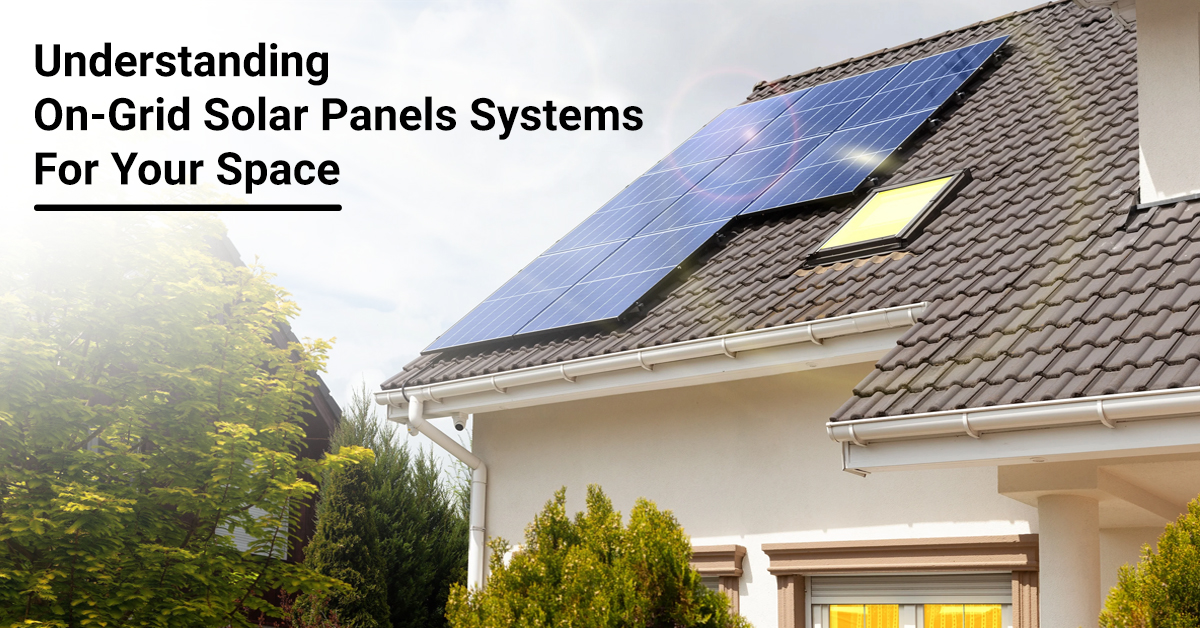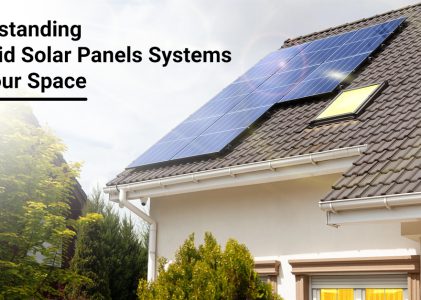Solar power for residential or commercial space has recently become the most popular option as the world is looking for more sustainable living. The popular solar rooftop installation for businesses and homeowners is on-grid solar panel systems which offer extended benefits, making it an ideal investment. This blog will explore the critical aspects of on-grid solar panel systems and how they can be a valuable addition to your space.
What Are On-Grid Solar Panel Systems?
On-grid solar panels are designed to work based on the utility grid (a network of interconnected power generation, transmission, and distribution systems), drawing energy from the grid when the solar panels do not produce enough energy or electricity. However, once your solar panels produce power, the excess energy is fed back to the grid.
Basic Components Of On-Grid Solar System:
The primary components of an on-grid solar system include inverters, solar panels, a utility grid, and a net meter.
Solar Panels:
Solar panels are the primary component of any type of solar system installed in an open area to receive the maximum sun power, converting the sunlight into electricity (DC power).
Inverters:
Another essential component in the on-grid solar system is the inverters, where the obtained DC current from the solar panels is converted into AC current with the help of inverters. Hence, these AC is used by the utility grid and homeowners or businesses for their requirements.
Net Meter:
Thirdly, the net meter is the major of the on-grid solar system, which tracks the power of electricity obtained from the solar panels and the amount of electricity used by the home appliances. If your panels produce more power than required, the excess energy is sent to the utility grid, which is also recorded in your net meter as credit.
Utility Grid:
The utility grid is also a significant component in the on-grid solar system as it is the solar system in drawing the power when your solar panels do not provide enough solar energy. However, this process reverses during sunny days as the solar panels produce excess electricity, which is fed back to the grid and allows you to earn more credits.
Benefits Of On-Grid Solar Panel Systems:
Financial Savings:
You can significantly reduce your monthly electricity bills by generating your electricity. Excess energy you generate and send back to the grid earns you credits, potentially leading to even more savings.
Low Upfront Costs:
On-grid systems typically require a smaller upfront investment than off-grid systems because you don’t need to invest in expensive battery storage.
Environmental Impact:
Generating solar power reduces your reliance on fossil fuels, helping to lower your carbon footprint and contribute to a cleaner environment.
Minimal Maintenance:
Solar panels are relatively low-maintenance. Regular cleaning and occasional checks on system performance are usually sufficient to keep the system running smoothly.
On-grid solar panel systems present a compelling solution for those looking to harness the sun’s power while remaining connected to the utility grid. With financial savings, environmental benefits, and potential incentives, these systems are a smart investment for homeowners and businesses alike. Hence, approach Buhin Solars, one of the best solar companies in Chennai, to enjoy the benefits of an on-grid solar system and contribute to a greener environment.


